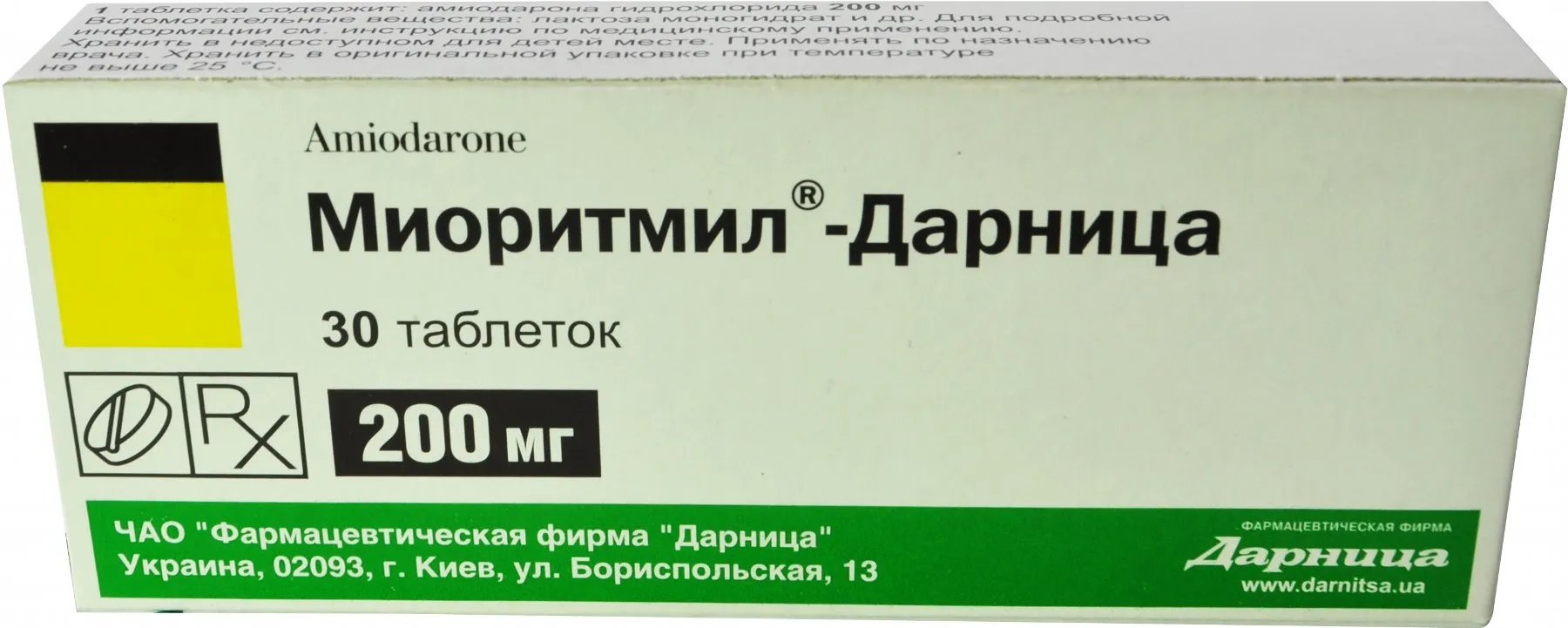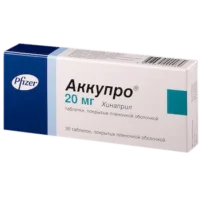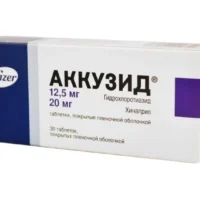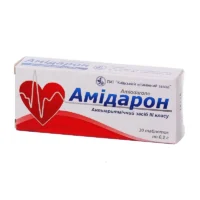Description
Mioritmil (Amiodarone) Tablets 0.2 g. №30
Ingredients
- Active ingredient: Amiodarone hydrochloride 0.2 g per tablet.
Dosage
- Dosage: The usual dose is 200-400 mg daily, taken as directed by a healthcare provider.
Indications
- Indications: Mioritmil tablets are indicated for the treatment of various types of irregular heartbeats (arrhythmias).
Contraindications
- Contraindications: Do not use Mioritmil if you have a known hypersensitivity to amiodarone or iodine.
Directions
- Directions: Take Mioritmil tablets orally with a full glass of water. Do not crush or chew the tablets.
Scientific Evidence
- Amiodarone has been extensively studied for its efficacy in managing various arrhythmias. Research published in the “Journal of the American College of Cardiology” has shown that amiodarone is effective in controlling atrial fibrillation and reducing the risk of sudden cardiac death.
Additional Information
- Mioritmil tablets may interact with other medications, so it is important to inform your healthcare provider about all the drugs you are taking. Regular monitoring of thyroid function and lung health is essential during treatment with amiodarone.
Pharmacological Effects: Amiodarone works by prolonging the action potential duration and refractory period of cardiac tissue, thereby stabilizing the heart’s electrical activity. It also exhibits anti-adrenergic and calcium channel blocking properties.
Clinical Trials: Clinical trials have demonstrated the efficacy of amiodarone in significantly reducing the recurrence of ventricular arrhythmias and improving overall survival rates in patients with heart rhythm disorders. These findings have solidified amiodarone’s position as a cornerstone therapy for various arrhythmias.





